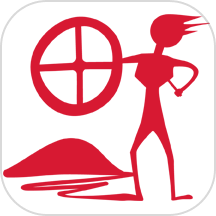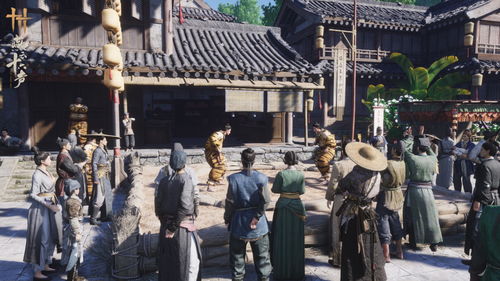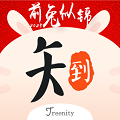How Do You Say 'Prince of Tennis' in English?
作者:佚名 来源:未知 时间:2024-12-04
The Prince of Tennis: Unraveling the English Translation

In the vibrant world of sports anime, few titles have captured the hearts of fans globally quite like "テニスの王子様" (Tenisu no Oujisama), more famously known in English as "The Prince of Tennis." This iconic series, which began as a manga created by Takeshi Konomi, quickly transcended its original Japanese medium to become a beloved phenomenon worldwide, thanks to its compelling characters, high-octane tennis matches, and heartfelt storylines.
For those unfamiliar with the series, the question "How do you say '网球王子' in English?" might seem straightforward, but it opens a door to a rich tapestry of cultural translation and adaptation. The direct translation from Japanese to English, as mentioned earlier, is "The Prince of Tennis," but this phrase encapsulates much more than a mere linguistic conversion. It embodies the essence of the series, appealing to both tennis enthusiasts and anime lovers alike.
The appeal of "The Prince of Tennis" lies in its ability to blend the intensity and elegance of tennis with the dramatic flair of Japanese anime storytelling. The series follows the journey of a young tennis prodigy named Ryoma Echizen, who, despite his small stature and youthful appearance, possesses unparalleled skills and a fierce competitive spirit. Ryoma's arrival at Seigaku Academy, a prestigious high school known for its tennis club, shakes up the dynamic among the existing team members, leading to a series of thrilling matches and character development arcs.
The English translation "The Prince of Tennis" perfectly encapsulates Ryoma's regal aura on the court. The term "prince" connotes a sense of nobility and grace, qualities that Ryoma embodies both on and off the court. His unparalleled tennis skills, coupled with his cool demeanor and occasional flair for the dramatic, make him a standout figure, deserving of the moniker "prince."
However, the translation is not just about Ryoma. It also extends to the broader themes and motifs of the series. Tennis, in "The Prince of Tennis," is more than just a sport; it's a passion, a way of life, and a crucible for personal growth. The English title underscores this by focusing on the regal, almost mythical status that tennis holds within the world of the series. Each character is portrayed as a warrior on the court, fighting with everything they have to claim victory, and the title serves as a testament to their dedication and skill.
Moreover, the translation to English has been instrumental in the series' global success. With the rise of anime and manga in Western markets, titles like "The Prince of Tennis" have become gateways for new fans to explore Japanese culture and storytelling. The English dub and subtitled versions of the anime have allowed viewers worldwide to experience the high-stakes matches, emotional storylines, and memorable character interactions that have made the series a beloved classic.
The translation process itself is a nuanced art, requiring a delicate balance between fidelity to the original text and adaptability to the target language's cultural context. In the case of "The Prince of Tennis," the English title manages to strike this balance perfectly. It captures the spirit of the original Japanese title while also resonating with English-speaking audiences.
The series' English adaptation has also been praised for its faithfulness to the source material. The anime adaptation, produced by Studio Pierrot, has been commended for its high-quality animation, which brings the fast-paced tennis matches to life in stunning detail. The voice acting, both in the dub and the subtitled versions, has been celebrated for its ability to capture the unique personalities and emotions of the characters.
In addition to the anime, the "The Prince of Tennis" franchise has also expanded into other media forms, including video games, light novels, and live-action adaptations. Each of these adaptations has contributed to the series' legacy, introducing new fans to the world of Seigaku Academy and its talented tennis players.
The English translation of "テニスの王子様" as "The Prince of Tennis" has also played a crucial role in the series' merchandising and branding. From tennis-themed clothing and accessories to collectible figurines and trading cards, the series' branding has become synonymous with high-quality and exciting tennis-related products. The English title has helped to create a recognizable and marketable brand that appeals to fans across different demographics and cultural backgrounds.
In conclusion, the English translation of "テニスの王子様" as "The Prince of Tennis" is a masterpiece of linguistic adaptation. It captures the essence of the original series while resonating with English-speaking audiences. The title serves as a testament to the series' enduring appeal and its ability to transcend cultural boundaries.
As fans continue to discover and revisit "The Prince of Tennis," the English translation will remain a crucial part of its legacy. It will continue to introduce new generations of fans to the thrilling world of tennis, the noble spirit of competition, and the unforgettable characters that have made the series a beloved classic.
Whether you're a seasoned fan or a newcomer to the world of "The Prince of Tennis," the English translation offers a gateway to an exciting and emotional journey. So, the next time you find yourself wondering how to say "网球王子" in English, remember that it's more than just a translation; it's an invitation to a world of tennis, passion, and personal growth. Grab your racket, hit the court, and embrace the spirit of "The Prince of Tennis.
- 上一篇: DVD刻录盘的使用寿命有多久?
- 下一篇: 安丘冠珠陶瓷视频观看指南:一键直达精彩内容
热门手游
换一换- 精品游戏
- 最热榜单
































